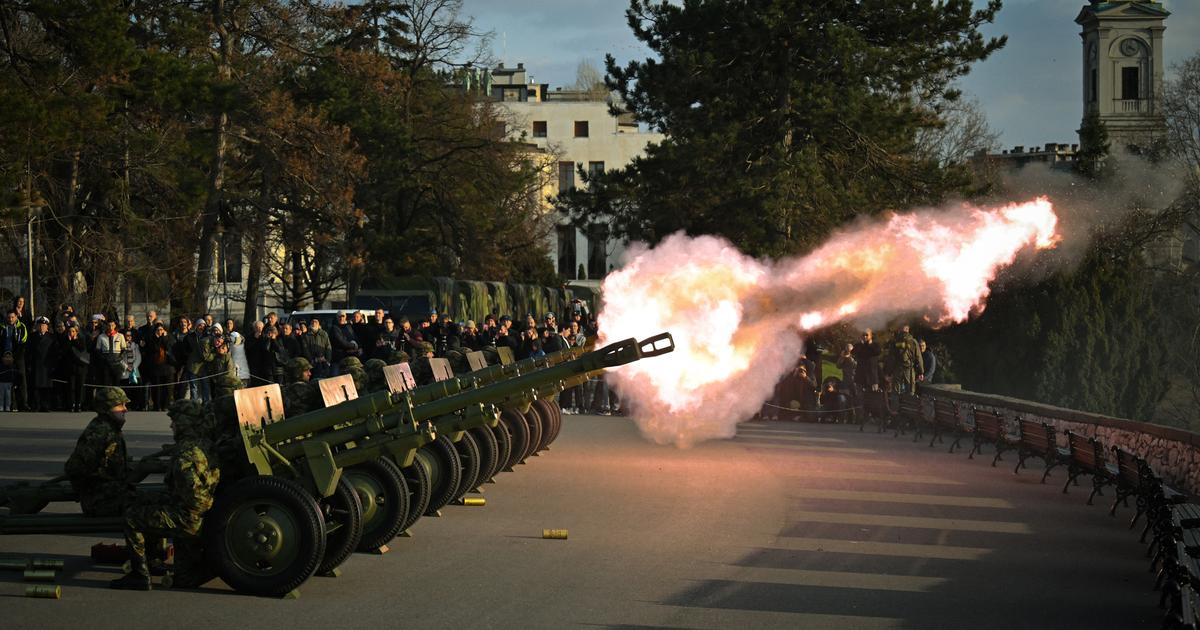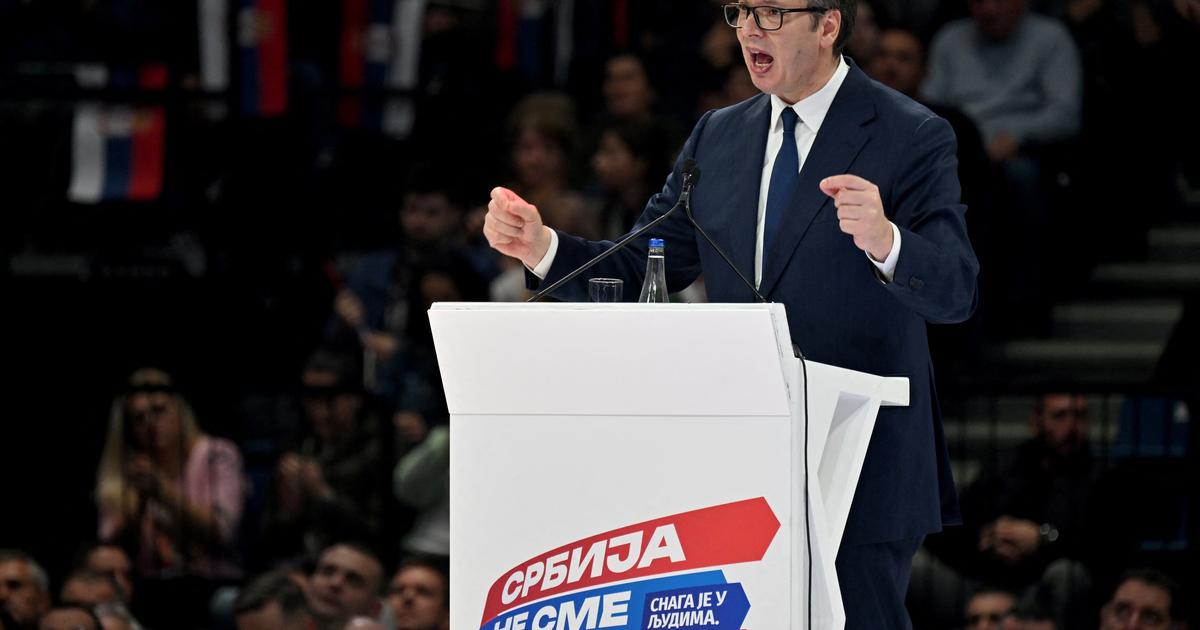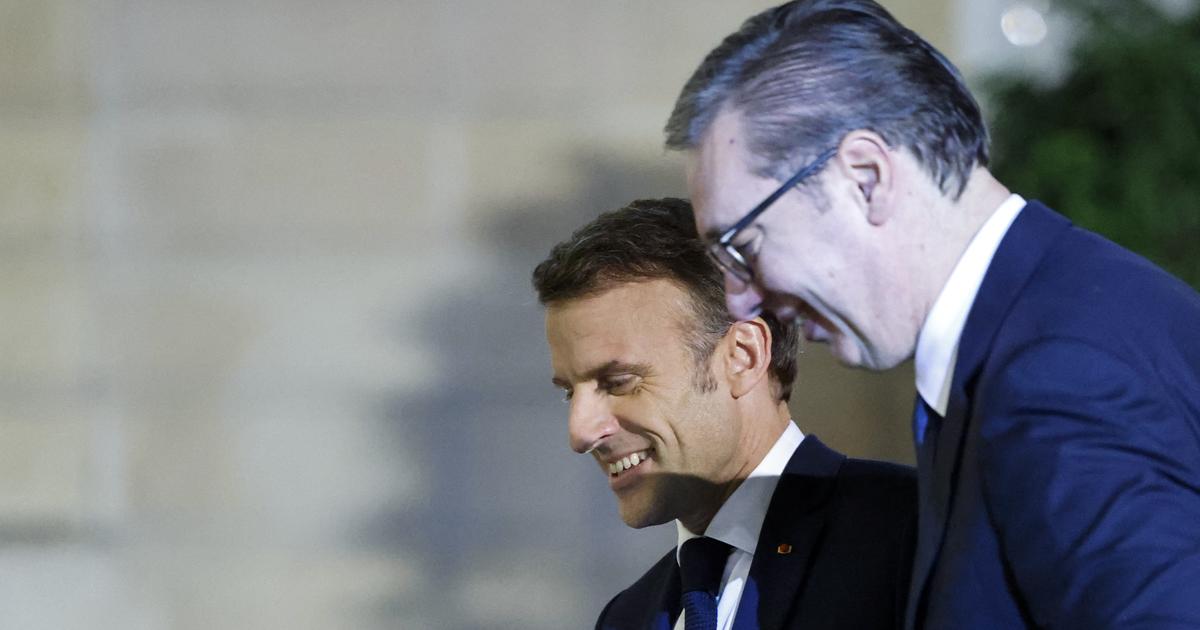Tensions between Serbia and Kosovo "serious, but no risk of war": Balkans expert sees "staging"
Created: 12/15/2022, 5:20 am
By: Andreas Schmid
NATO soldiers from the Kosovo Force (KFOR) inspect a street barricade erected by ethnic Serbs near the town of Zubin Potok December 11, 2022. © Armend Nimani/AFP
Is a new escalation in the Kosovo conflict imminent?
Balkans expert Konrad Clewing sees Serbian muscle flexing at IPPEN.MEDIA, including “breathtaking inflammatory politics”.
Regensburg – Tensions between Serbia and Kosovo intensified again over the weekend.
Shots at police officers and road blockades ensured that Kosovo, which has been independent of Serbia since 2008, postponed its local elections.
An ethnic Serb had previously been arrested and held responsible for attacks on planned polling stations.
Serbian President Aleksandar Vucic then intervened – and threatened to send Serbian troops to Kosovo, which Belgrade still regards as a breakaway.
How serious is the situation?
Serbian staging?
“Tensions serious but no threat of war”
In an interview with IPPEN.MEDIA, the Balkans expert Konrad Clewing speaks of a “precarious situation”, especially in northern Kosovo.
There, in the border area with Serbia, Belgrade runs its own power structures and encourages the Serb minority in their attempts to defy Pristina's authority.
"The tensions are serious," says Clewing, who works at the Leibniz Institute for East and Southeast European Studies in Regensburg.
"But they do not represent a threat of war."
On Monday, suspected shots of Serbian tanks near the Kosovar border caused a stir.
The Spanish newspaper
El Periodico de la Geopolitica
published a corresponding video on Twitter, it is not verified.
According to Clewing, these images could serve as "staging."
“Serbia has been trying to exert pressure with such staging for months.
But there will be no military intervention."
Serbian President speaks of sending troops: "These statements remain a threat"
At the same time, Serbian President Vucic indicated that "up to 1,000" Serbian troops would be sent to Kosovo.
"To keep the peace," as Vucic said.
To this end, he is planning an application to the NATO-Kosovo force KFOR.
It has been stationed there as a "guarantor of security" since the end of the Kosovo war in 1999 and would have to approve the deployment of troops.
Serbia refers to the Kosovo resolution of the United Nations.
It states that "a small, agreed number (hundreds, not thousands)" of Serbian soldiers may return to Kosovo, for example to protect border crossings.
There are different opinions as to whether the resolution after Kosovo's independence in 2008 is still valid.
According to the Serbian account, it has endured.
According to his own statements, Vucic does not expect the troop transfer to be approved.
The announcements are therefore above all a power play by Belgrade, as Clewing says: “With absolute certainty, KFOR will under no circumstances approve it.
Vucic's statements are above all a demand for the Serbian public, they remain a threat.” Because: “Serbia will certainly not take military action against KFOR”.
Then NATO would also be directly involved in the conflict and the tensions would take on a completely new dimension.
Kosovo officially applies for EU membership
On Wednesday, the Republic of Kosovo officially applied for EU membership.
For the youngest state in Europe, it was a rather symbolic act: EU membership is currently not within reach.
Formally, Kosovo only has an “EU accession perspective”.
also read
Kosovo conflict: USA reject Serbia's wish - Bundeswehr man sees "constant basis for escalations"
READ
Medvedev threatens the West with "the most powerful weapons of destruction" - Zelenskyj sets a condition for the peace plan
READ
"No surrender": Serbia's President Vucic fuels escalation in the Kosovo conflict
READ
Serbian military convoy is apparently rolling towards Kosovo – there is a risk of escalation in the middle of Europe
READ
"I want to live": More and more Russian soldiers are calling the Ukrainian hotline and want to surrender
READ
Fancy a journey of discovery?
My space
The country, which is now almost exclusively inhabited by Albanians, used to belong to Yugoslavia or Serbia.
After repression by the Serbian security forces against the Albanian civilian population, NATO bombed targets in what was then the rest of Yugoslavia (Serbia and Montenegro) in spring 1999.
The Serbian security forces and state organs left Kosovo.
The UN mission UNMIK took over the administration and the creation of Kosovan institutions.
In February 2008, the Kosovar parliament declared independence.
117 states recognize Kosovo under international law, including Germany.
There are five countries in the EU that do not recognize Kosovo for different reasons.
Spain, for example, refrained from doing so for fear that Catalonia and the Basque country would then also want to become independent.
Bundeswehr operations commander in Kosovo warns of "permanent danger" of escalation
Again and again there are conflicts between Serbia and Kosovo.
This year there was trouble because Kosovo wanted to ban Serbian license plates.
Because of the friction with Serbia, Kosovo "naturally has security concerns," says Clewing.
"Serbia is pursuing a breathtaking domestic policy against Kosovo and the Albanians, so that the long-term existence of Kosovo is definitely endangered."
The Bundeswehr operations commander on site in Kosovo also warns of the "continuous danger" that the situation on site will deteriorate "in a very short time".
The dissatisfaction of many people in northern Kosovo forms a "constant basis for possible escalations and potential for violence," said the German KFOR contingent leader Egon Frank of the
world
.
The NATO-led operation was "compulsory and indispensable for securing peace and stabilizing the situation on the ground," Frank continued.
The precarious situation in northern Kosovo can be traced back to "organized crime, Serbian parallel structures and the unchanged potential for inter-ethnic conflict".
"Various Serbian actors" would use the people as "an instrument of Serbian influence".
(as)













